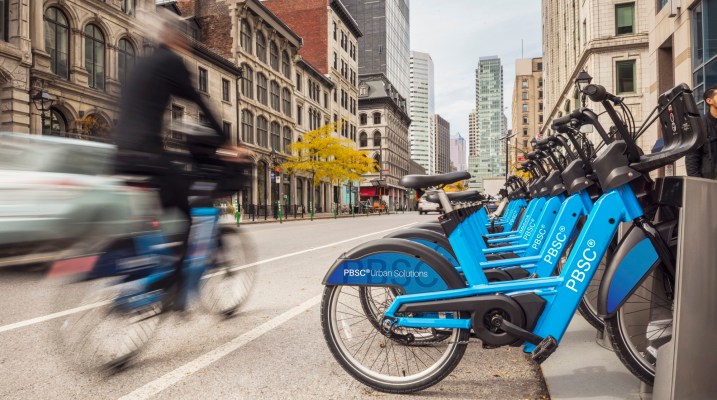
Lyft has signed an agreement to acquire PBSC Urban Solutions, a Canadian supplier for bikeshare equipment in technology, in a move that the company says will double its scale in micromobility.
The ride-hailing company is on a mission to increase its micromobility footprint. Last month, Lyft partnered with Tier-owned Spin to bring Spin’s electric scooters to the Lyft app in 60 U.S. markets by the end of the year. The PBSC acquisition, which Lyft announced on Tuesday, will bring to Lyft’s repertoire the company’s 7,500 stations and 95,000 bikes that are scattered throughout 45 markets in 15 countries.
Lyft currently operates bikeshare in 10 cities, as well as a scooter share in San Diego. Lyft expects this deal to bring that number up to 50.
“Forging a better way to serve both cities and riders with the best bike and scooter sharing systems has long been part of our vision,” said David Foster, head of transit, bikes and scooters at Lyft, in a statement. “Our agreement to acquire PBSC will help us deliver world-class products and experiences to riders in the largest cities around the world in the coming decade.”
Keeping branding consistent shouldn’t be difficult with this buy — Lyft’s docks and bikes are similar-looking to PBSC’s, which Lyft attributes to using customized versions of PBSC’s hardware designs that they pioneered.
This isn’t the first time Lyft has acquired a bikeshare company. In 2018, Lyft acquired Motivate and all of its existing contracts, including Citi Bike in New York City. Citi Bike now has more than 24,000 bikes that have seen over 28 million rides in 2021.
While many bikeshare programs are free-floating, PBSC, like Lyft, has had a station-based approach, which Lyft says creates predictability and order in the public right of way for pedestrians.
Lyft would not share the terms of the deal, which is expected to close by the end of the second quarter.

